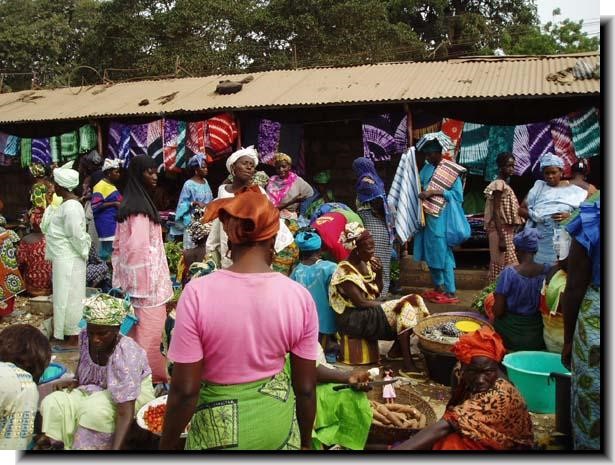By Adama Makasuba
Hundreds of women entrepreneurs within the greater Banjul have been bearing the brunt of the coronavirus since its emergence in the mid-2020, forcing dozens of businesses to shutdown and causing job losses.
But one major effect of the impact of coronavirus on businesses within the region was the government declaration of a state of health emergency in a bid to help curb the spread of the virus that saw working hours for businesses predominantly curtailed down to few hours.
The lockdown had nearly crumbled some businesses, but some women business owners resisted it and battled restriction period.
Fatoumatta Kijera sells food items like rice, cooking oil and tine milks. Her business was nearly gone after losing nearly 300, 000 dalasis in profit during the lockdown period.
“I lost in profit about 250,000 dalasis during the lockdown,” she says. “It really affected us during the lockdown because even before the lockdown business wasn’t as lucrative as we expected it to be.”
She cites a possible link of commodity price hike to high tax at the nation’s ports.
“Because if major importers are hit with heavy taxation definitely us the small businesses will also suffer,” she says.
Another woman entrepreneur, Kumba Faye, who sells sewed clothing in the Serrekunda Market is also hit hard by the lockdown.
“It was hard on us during the lockdown because we used to take our products from other major importers for sale to make profit and go and pay them back,” she says.
“And you would if we take these products and we don’t customers coming to buy give us a sleepless night.”
Most Gambian women entrepreneurs do business informally with little record keeping, and according to experts, the full extent of the impact of coronavirus on them may not be known.
“Restrictions imposed as a result of the coronavirus pandemic have led to revenue and job losses and in some cases, business closures affecting lives and livelihoods of many,” Abdou Kolley, an economist and former state minister of finance and economics affairs says.
“Women entrepreneurs are faced by several challenges ranging from skills like use of ICTs and access to finance and the full impact may not be known as most of these businesses operate at the informal level with zero or very limited record keeping.”
The government has a massive role to play in empowering women entrepreneurs and that role has come under increased appreciation during the pandemic.
Trade minister Seedy Keita agrees and says government is committed to supporting businesses including women entrepreneurs.
“I can assure my ministry will stand ready to support youth enterprise,” he says.
Yet, experts believe the government should include in its programme relief packages for women entrepreneurs.




